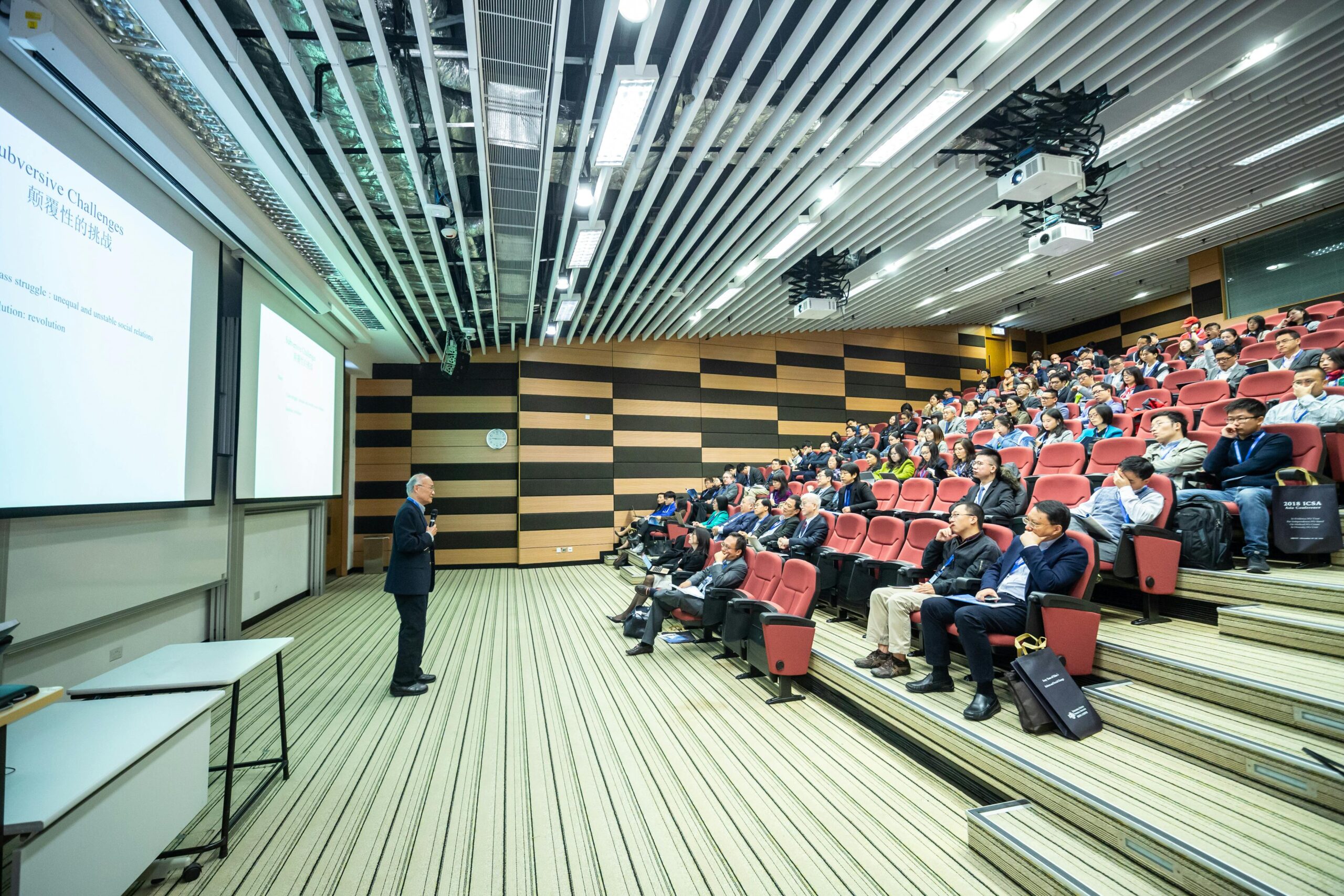Introduction
Are you gearing up to organise a standout corporate event? Planning such events requires clear goals, strategic planning, and keen coordination, all aimed at crafting experiences that resonate and achieve measurable outcomes. This comprehensive guide is your roadmap through the essentials of corporate event planning. From carving out roles and responsibilities to crafting a precise budget and from seamless execution to insightful evaluation, each segment is loaded with practical advice to guide you step by step. Ideal for both the seasoned event planner and those new to the domain, this guide is designed to help create an event that is not only successful but also memorable and impactful. Dive in to discover how to align your event with organisational objectives, manage logistics efficiently, and ensure your event leaves a lasting impression on all attendees.
Table of Contents
- Corporate Event Objectives
- Planning and Managing a Corporate Event Budget
- Event Planning & Coordination
- Risk Assessments for Events
- Event Health and Safety
- Sourcing and Negotiating with Suppliers and Venues
- Sourcing and Coordinating Accommodation
- Event Evaluation
- Conclusion
1. Corporate Event Objectives
What are Event Goals and Objectives?
Understanding the difference between goals and objectives is pivotal in corporate event planning. Goals are broad outcomes that impact your business’s key performance indicators, such as increasing brand awareness or fostering industry relationships. Objectives, however, are specific, measurable steps designed to achieve these goals. Effectively setting these parameters is crucial for tracking event success and providing clear direction for the planning process.
Defining Measurable Objectives
To drive the success of any corporate event, objectives must be well-defined and quantifiable. Implementing SMART (Specific, Measurable, Achievable, Relevant, and Time-bound) objectives ensures each goal has a tangible benchmark for success. Here’s how to frame SMART objectives:
- Specific: Define the scope and the expected outcome. What exactly do you want to accomplish?
- Measurable: Attach numbers or percentages to allow for performance tracking.
- Achievable: Set realistic expectations that can be attained with the available resources.
- Relevant: Align the objectives with broader business goals to ensure they contribute to the company’s overall strategy.
- Time-bound: Specify when the results can be expected.
Examples of SMART Objectives for Corporate Events
Here are practical examples of how SMART objectives might be applied to corporate event planning:
- Increase Brand Awareness: Promote the event through email marketing and social media channels for eight weeks before the event date to attract at least 500 attendees.
- Generate Sales Leads: Secure at least 200 new contacts interested in our products by hosting product demonstrations and interactive sessions throughout the event.
- Enhance Client Engagement: Achieve a participant satisfaction rate of 85% through interactive workshops and high-quality keynote speeches, gauged via post-event surveys distributed within 24 hours of the event’s conclusion.
Utilising Data to Measure Success
The power of data in event planning cannot be overstated. Using tools such as attendee feedback forms, session tracking software, and engagement metrics on social media, event planners can accurately assess whether their objectives have been met. This data not only helps in measuring the effectiveness of the current event but also assists in fine-tuning strategies for future events.
By clearly defining your objectives and using data to measure outcomes, you can ensure that your corporate event meets and exceeds expectations, delivering significant value to your organisation and its stakeholders.
2. Planning and Managing a Corporate Event Budget
Event Budget Components
A well-planned budget is essential for the success of any corporate event. It ensures that all financial resources are wisely allocated and monitored throughout the planning process. Here are the key components that should be included in your event budget:
- Venue and Logistics: Costs associated with renting the venue, as well as expenses for setup, breakdown, and logistics management.
- Catering: Expenses for meals, beverages, and any special dietary accommodations for attendees.
- Technology: Investment in audiovisual equipment, event apps, online platforms for virtual components, and other technological needs.
- Entertainment: Fees for performers, speakers, DJs, or bands, including their travel and accommodation costs, if applicable.
- Marketing: Budget for promoting the event through various channels such as social media, email marketing, and print advertising.
- Contingencies: An essential reserve fund (typically 10-20% of the total budget) to cover unexpected costs or emergencies.
Preparing an Event Budget
Creating and managing a detailed event budget requires careful planning and continuous monitoring. Here’s how to approach it:
- Forecast All Potential Expenses: Start by listing every conceivable expense category and potential costs associated with your event. This should include quotes from suppliers and any known variable costs.
- Track Actual Expenditures: Set up a system for regularly updating actual spend versus the forecasted budget. This could be managed through spreadsheet software or a specialised event budgeting tool.
- Review Regularly: Schedule regular budget reviews to ensure you are on track and make adjustments as necessary. This is crucial for managing cash flow and avoiding overspending.
Tips for Budget Efficiency
- Negotiate with Vendors: Don’t accept the first quote; always try to negotiate better rates with suppliers and venue managers.
- Leverage In-Kind Sponsorships: Securing sponsorships that provide goods or services in exchange for promotional benefits can reduce out-of-pocket costs.
- Monitor and Adjust: Be flexible and ready to adjust your budget as planning progresses. Some line items may come under budget, allowing reallocation of funds where needed.
Effective budget management prevents financial oversights and ensures that every dollar spent contributes to making your corporate event a memorable experience. You can deliver an outstanding event within financial boundaries by thoroughly planning and continually monitoring your budget.
3. Event Planning & Coordination
Preparing Timelines and Itineraries
Successful corporate events are the result of meticulous planning and timing. Creating detailed timelines and itineraries is crucial:
- Initial Planning Phase: Identify major milestones, such as venue booking, vendor contracts, and marketing launch, and set deadlines for each.
- Lead-up to the Event: Schedule detailed preparations for the weeks and days preceding the event, including final confirmations with vendors and staff briefings.
- Event Day: Outline minute-by-minute activities to coordinate event flow smoothly.
- Post-Event: Plan for follow-up activities, such as thank you notes to speakers and attendees, and debrief sessions with the team.
Managing Ticketing and Registration
Efficient handling of ticket sales and registrations greatly enhances the attendee experience:
- Technology Integration: Utilise event management software to handle ticket sales, registration, and attendee tracking. This can include features for custom registration forms, automated confirmations, and on-site check-in processes.
- Data Management: Ensure that the chosen platform can provide real-time data on attendees, helping in adjusting logistics and marketing strategies promptly.
- User Experience: Streamline the registration process to minimise steps and required information, making it quick and user-friendly.
On-the-Day Responsibilities
The success of the event day relies heavily on the coordination and readiness of the event team:
- Role Assignments: Clearly define and distribute responsibilities among team members well ahead of the event. Roles may include registration desk staff, session coordinators, technical support, and emergency response teams.
- Briefing Sessions: Conduct comprehensive briefing sessions for all staff and volunteers to review their roles, the event schedule, and emergency procedures.
- Problem-Solving: Establish a transparent chain of command for addressing issues quickly and efficiently. Equip team leaders with the necessary authority and resources to make on-the-spot decisions.
Key Coordination Tips
- Communication: Maintain open lines of communication among all team members throughout the event. Use walkie-talkies or a group messaging app to keep everyone connected.
- Flexibility: Be prepared to adapt the itinerary as needed based on real-time feedback and situational demands.
- Post-Event Analysis: Gather feedback from staff and attendees to identify what worked and what could be improved for future events.
Effective planning and coordination ensure that the event runs smoothly and provides a memorable experience for all participants. Following these structured steps, you can confidently manage every aspect of your corporate event.
4. Risk Assessments for Events
The Importance of Risk Assessments
Conducting thorough risk assessments is a critical part of event planning. Recognising and mitigating potential risks ensures the safety and security of all participants and can significantly reduce your organisation’s liabilities. By identifying possible hazards early, you can prepare adequate responses and prevent many emergencies from occurring.
Preparing Event Risk Assessments
Here’s how to systematically approach risk assessments for corporate events:
- Identify Potential Risks: Start by listing all potential risks that could impact your event. These might include weather-related issues, technological failures, health emergencies, or security threats.
- Evaluate the Risks: Assess each identified risk’s likelihood and potential impact. This will help prioritise which risks require more immediate attention and resources.
- Develop Mitigation Strategies: For each high-priority risk, develop a strategy to mitigate that risk. This could involve contingency planning, sourcing backup suppliers, or implementing safety measures.
Key Areas to Focus on During Risk Assessments
- Venue Safety: Ensure the venue complies with fire safety regulations and has adequate emergency exits, accessible first aid kits, and proper signage.
- Technology and Data Security: Plan for backups in case of technological failures. Protect attendee data with secure registration platforms and payment processes.
- Health Emergencies: Have medical personnel on standby or easily accessible, and plan for current health guidelines, including those related to pandemics.
Staff Training on Response Procedures
Effective risk management also involves training your event staff to handle emergencies:
- Emergency Response Training: Train staff on emergency procedures, including evacuation routes, emergency contacts, and the use of fire extinguishers.
- Health and Safety Protocols: Ensure staff are familiar with health protocols, including CPR and basic first aid. Recent events also necessitate training in health measures like sanitation procedures and crowd management.
Documenting Your Risk Assessment
Maintain thorough documentation of your risk assessment process:
- Risk Assessment Report: Keep a detailed report that includes identified risks, their potential impact, and the measures taken to mitigate them.
- Audit Trails: Record any changes to your risk assessment and the reasons for those changes. This documentation can be crucial for legal reasons and for improving future event planning.
Conducting and updating risk assessments throughout the planning process ensures a safer event and builds confidence among stakeholders and attendees. By preparing for the unexpected, you position your event for success, regardless of the challenges that may arise.
5. Event Health and Safety
Creating a safe and secure environment is a fundamental aspect of event planning that safeguards participants and ensures a smooth experience. Compliance with health and safety regulations is a legal requirement and a critical measure to enhance attendee confidence and comfort.
Key Health and Safety Measures
- Regulatory Compliance: For your event, familiarise yourself with and adhere to local health and safety laws. This includes fire safety codes, food safety regulations, and occupational health standards.
- Accessibility: Ensure the venue is accessible to everyone, including individuals with disabilities. This includes wheelchair access, suitable restrooms, and signage.
- Medical Preparedness: Arrange for medical services onsite or nearby. This could involve having a dedicated first-aid team or paramedics available, especially for large-scale events.
Planning for Health and Safety
- Risk Assessment: Conduct a thorough risk assessment focused on health and safety aspects and prepare for potential medical emergencies.
- Training: Provide all staff with basic first aid and emergency response procedures training. Regular briefings on health and safety protocols are essential.
- Information Distribution: Make health and safety information accessible to all attendees. This can include maps showing emergency exits and first aid stations distributed in print and digital channels.
By prioritising health and safety, you not only comply with necessary regulations but also promote a secure and inclusive atmosphere that is conducive to a successful event. These precautions help prevent incidents and ensure that quick responses are available in case emergencies occur, thereby protecting the well-being of every participant.
6. Sourcing and Negotiating with Suppliers and Venues
When planning a corporate event, choosing the right suppliers and venues is critical to its success. This process involves a detailed evaluation of potential partners and strategic negotiations to ensure you secure the best possible terms.
Key Considerations for Sourcing
To select the ideal venue and suppliers, consider these essential factors:
- Cost: Align choices with your budget while ensuring you do not compromise on quality. Look for competitive pricing but also value for money.
- Services: Evaluate the venue and suppliers’ services. Ensure they can accommodate all your event needs, such as catering, audio-visual requirements, and setup.
- Location: Choose a location that is accessible for all attendees. Consider proximity to major transport links, parking availability, and accommodation if needed.
- Capacity: Ensure the venue can comfortably accommodate your expected number of guests along with necessary event setups like stages, seating arrangements, and exhibitor booths.
Negotiation Tactics
A good relationship with your suppliers and venue managers can lead to more favourable terms. Here are some strategies to enhance your negotiation tactics:
- Build Relationships: Foster a positive relationship with suppliers from the initial contact. Showing respect and understanding for their work can make negotiations smoother.
- Be Informed: Come to the negotiation table well-prepared with knowledge of standard industry rates, services, and terms. This will help you discuss confidently and recognise reasonable offers.
- Flexibility and Compromise: While you should have clear goals, also be ready to compromise where beneficial. Flexibility can lead to better cooperation and terms.
- Multi-event Deals: If you plan events regularly, negotiate contracts for multiple events to secure better rates and terms.
Effective Supplier and Venue Management
- Clear Communication: Maintain clear and continuous communication channels. Ensure all agreements are well-documented and understood by both parties.
- Contracts: Always formalise agreements with detailed contracts that specify every service aspect, including cancellation policies and any contingencies.
- Performance Tracking: Monitor the performance of suppliers and venues during the event to assess if they meet the agreed standards.
By meticulously evaluating and skillfully negotiating with suppliers and venues, you can significantly enhance the quality and success of your event while maintaining control over your budget. This approach ensures that you meet your event objectives and establish strong, lasting relationships with key partners in the industry.
7. Sourcing and Coordinating Accommodation
Ensuring that your attendees have comfortable and convenient accommodations is key when planning a corporate event. This aspect of event planning demands careful consideration of various options and criteria to suit different preferences and budgets.
Accommodation Options
Providing a range of accommodation options is essential to cater to the diverse needs of your attendees:
- Luxury Hotels: Ideal for VIP attendees or speakers, offering premium services and amenities.
- Mid-range Hotels: A balance of comfort and cost, suitable for most attendees.
- Budget Options: Including motels and budget hotels for cost-conscious attendees.
- Alternative Accommodations: Such as serviced apartments or university dorms during off-peak seasons, which can be cost-effective for more extended stays.
Sourcing and Selection Criteria
Selecting the right accommodations involves several important factors:
- Proximity: Choose accommodations near the event venue to minimise travel time and transportation costs. Proximity enhances the attendee experience and maximises attendance at scheduled activities.
- Amenities: Look for accommodations that offer essential amenities, such as free Wi-Fi, breakfast options, and fitness centres, which can be crucial for business travellers.
- Price: Negotiate group rates to provide cost-effective options for attendees. This can be a deciding factor for many participants and can influence the overall attendance rate.
- Group Needs: Consider your group’s specific needs, such as accessibility features for attendees with disabilities or family-friendly accommodations for those who may bring family members.
Coordinating Accommodation
Effectively managing accommodation involves several strategies:
- Block Bookings: Reserve a block of rooms to ensure availability and secure a discounted rate. Make sure to have a precise cut-off date for booking these rooms.
- Communication: Provide clear and detailed information about accommodation options and booking procedures in your event communications, including emails, registration websites, and welcome packets.
- Transportation: If accommodations are outside walking distance, arrange transportation between the venue and hotels, such as shuttle buses or car services, to facilitate easy travel for attendees.
Thoughtfully sourcing and coordinating accommodations can significantly enhance the attendee experience at your corporate event. This approach ensures comfort and convenience and reflects the event’s professionalism and thoughtful planning, contributing considerably to its success.
8. Event Evaluation
Evaluating the success of a corporate event is crucial to understanding its impact and improving future events. This involves systematically collecting and analysing feedback and then using this data to make informed decisions about future planning.
Obtaining and Evaluating Feedback
To effectively gauge an event’s success and areas for improvement, consider these methods for gathering feedback:
- Surveys: Deploy post-event electronic surveys to collect quantitative and qualitative feedback from participants. Ensure these are concise yet comprehensive enough to cover key aspects like content, logistics, and overall experience.
- Focus Groups: Organise focus groups with diverse attendees to explore the event experience more deeply. These discussions can provide insights that surveys might miss, such as nuanced perceptions of the event’s atmosphere and logistics.
- Informal Conversations: Engage with attendees during and after the event through informal conversations. These can be a goldmine for honest, on-the-spot feedback and spontaneous suggestions.
Key Areas to Focus on in Feedback
- Content Quality: Assess the relevance and depth of the content presented during the event.
- Event Logistics: Evaluate aspects like venue accessibility, quality of food and beverages, and the efficiency of registration processes.
- Attendee Engagement: Determine how engaged participants were through their participation in sessions and activities.
- Technology Use: Review the effectiveness of any technology used for presentations, networking, or attendee interaction.
Making Recommendations
Analysing feedback effectively can lead to actionable recommendations:
- Identify Trends: Look for common themes or recurring comments in the feedback to identify areas for improvement.
- Quantify Data: Where possible, use statistical tools to quantify feedback, providing a clear picture of overall attendee satisfaction and the success of different event elements.
- Actionable Recommendations: Make specific, actionable recommendations for future events. For instance, if feedback indicates that sessions were too crowded, consider increasing the number of sessions or the event space for future events.
Implementing Changes
- Develop an Action Plan: Based on recommendations, create a detailed action plan with assigned responsibilities and timelines.
- Communicate Changes: Let stakeholders and future attendees know how their feedback has led to tangible changes. This transparency can increase engagement and trust in the event planning process.
By systematically evaluating each event and using feedback to drive continuous improvement, you can significantly enhance future corporate events’ effectiveness and attendee satisfaction. This cycle of feedback and improvement is essential for sustaining the relevance and impact of your events.
Conclusion
Planning a successful corporate event is an art form that demands meticulous attention to detail, robust planning, and proactive stakeholder engagement. By adhering to the structured guidelines in this guide, you are setting the stage for an event that does more than just meet expectations—it surpasses them, providing enriching experiences for all participants and delivering measurable benefits to your organisation. The cornerstone of successful event planning lies in your commitment to thorough preparation, effective communication, and consistent evaluation of outcomes. These elements are essential for refining future events and ensuring ongoing success.
Call to Action
Ready to transform your corporate event planning into a strategic asset for your business? Implement the strategies discussed here to ensure each event is impactful and unforgettable. Join our community to stay on top of the latest trends and insights in event planning. For more in-depth guidance, explore our other blog posts that cover various aspects of business strategy and event management. Don’t miss out—subscribe to our updates today and confidently plan your next successful event!




Leave a Reply